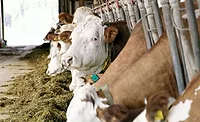Western AUS Department of Health Launches Strategy to Reduce Foodborne Campylobacteriosis

Image credit: engin akyurt via Unsplash
The Government of Western Australia Department of Health (WA Health) is launching a new strategy to reduce foodborne campylobacteriosis infections, which is the state’s most notified foodborne gastrointestinal disease, by educating consumers and working with meat producers to investigate their processes.
Foodborne Campylobacter infections reached a record high of 4,070 cases in Western Australia in 2022, which is almost 30 percent higher than the previous year.
In 2018, WA Heath set up a similar strategy to reduce instances of foodborne salmonellosis, which peaked in 2017 with 2,580 reported cases. Working together with industry, local government, and the Department of Primary Industries and Regional Development, Salmonella infections declined by 64 percent by 2022.
Although salmonellosis infections have declined, Campylobacter infections in WA are on the rise. The new health strategy for foodborne campylobacteriosis aims to better understand the risks of acquiring Campylobacter infection in the community and taking steps to better manage food safety across the entire food supply chain, from primary production through to consumers
Looking for quick answers on food safety topics?
Try Ask FSM, our new smart AI search tool.
Ask FSM →









